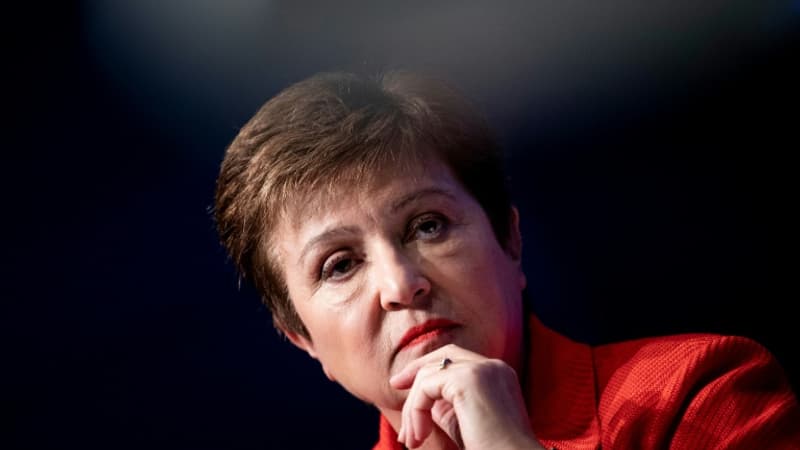“The new year will be more difficult than the one we left behind,” International Monetary Fund (IMF) managing director Kristalina Georgieva told CBS on Sunday. And for good reason, “all three major economies, the United States, the European Union and China, are slowing simultaneously,” she said.
The IMF lowered its global growth forecast for 2023 in October to take into account tensions linked to the war in Ukraine, inflation and rising interest rates, stressing that the situation could deteriorate significantly. The financial institution forecasts growth of 2.7% this year. This is already the lowest level since 2001, excluding the financial crisis of 2008 and the Covid pandemic in 2020.
Concern for China
China has since abandoned its “zero COVID” policy and embarked on reopening its economy, though Chinese consumers remain wary of a surge in coronavirus cases. President Xi Jinping called in a New Year speech on Saturday for more effort and unity as China enters a “new phase.”
According to Kristalina Georgieva, who visited China on behalf of the IMF in late December, “for the first time in 40 years, China’s growth in 2022 is likely to be equal to or less than global growth.” With the added bonus, an epidemic outbreak is expected in the coming months that is likely to hit the Chinese economy the most this year, she added.
“I was in China last week, in a bubble in a city where there was no Covid,” he said. “But that’s not going to last once people start traveling.” The next two months will be difficult for China and the impact on Chinese growth, the region and global growth will be negative, estimates Kristalina Georgieva.
Resilience of the US economy
The US economy, for its part, stands out and could avoid the contraction that risks affecting up to a third of the world’s economies, estimates the managing director of the IMF. “The United States is the most resilient,” he said, and “could avoid recession. We think the labor market will stay pretty strong.”
This fact, however, presents a risk, as it may impede the progress that the US Federal Reserve (Fed) needs to make to bring US inflation to its 2% target level. “It’s… a mixed blessing because if the labor market is very strong, the Fed may have to keep interest rates tighter for longer to reduce inflation,” Kristalina Georgieva said.
The Fed raised its reference rate in December by half a point to 4.50% and announced new economic projections that will entail at least additional rate hikes of 75 basis points in 2023.
The US labor market will be a focus for Fed officials, who would like to see labor demand ease to ease price pressures.
Pessimistic forecasts for all international institutions
The first week of the new year will be marked by a series of key data on the employment front, including Friday’s monthly Nonfarm Payrolls report. Analysts forecast the creation of 200,000 additional jobs for December and a stable unemployment rate at 3.7%, the lowest since the 1960s.
The pessimistic statements of the managing director of the IMF are in line with the forecasts of other international economic institutions. World Bank, OECD, UN, WTO: all have lowered their growth forecasts in recent months.
The OECD now expects growth of 2.2% this year. For the World Bank, GDP is expected at 1.9%. Some are even more pessimistic: rating agency Fitch Ratings forecasts GDP growth of just 1.4% next year.
Source: BFM TV


